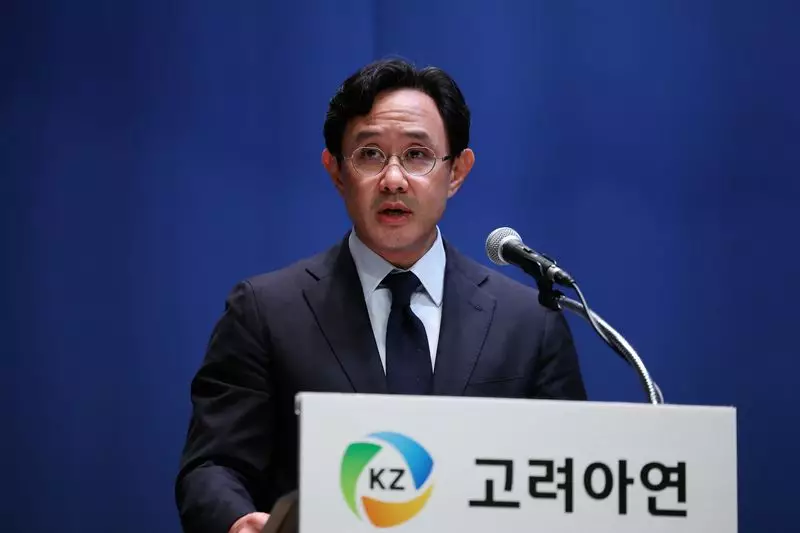The recent developments at Korea Zinc, the leading zinc refiner globally, are exemplary of the typically tumultuous nature of corporate governance in high-stakes environments. The company’s announcement to retract its plan to issue new shares worth $1.8 billion triggers a crucial ripple effect, revealing a financial landscape rife with competition and regulatory scrutiny. This scenario is not simply about one firm’s actions but rather a microcosm of the broader dynamics in corporate politics, where shareholder influence and market perception crucially intertwine.
Korea Zinc’s decision to abort its share issuance plan arose from palpable dissatisfaction among investors and the looming threat of an investigation by South Korea’s financial watchdog, the Financial Supervisory Service (FSS). The proposed issuance, which constituted nearly 20% of the company’s total shares, was intended to bolster its position against an aggressive stake acquisition by Young Poong and private equity firm MBK Partners. However, instead of reinforcing their defenses, the initiative backfired spectacularly, leading to a diminution of investor confidence and a significant sell-off in stock prices.
The chairman, Yun B. Choi, who initially supported the share issuance as a tactical maneuver to thwart what appeared to be a hostile takeover by rival stakeholders, is now navigating through a storm of shareholder displeasure. This unfolding drama illuminates the precarious balance that exists between proactive corporate strategies and the imperative of maintaining investor trust.
The immediate aftermath of the withdrawal was characterized by volatility in Korea Zinc’s stock prices. Although shares surged initially by 6% upon the decision’s announcement, they shockingly plummeted by 7% later in the trading session. Such fluctuations underline the fragile nature of investor sentiment in the wake of strategic miscalculations. Market reactions to corporate decisions are often driven by perceived motives; misalignment can lead to catastrophic consequences not just for share prices but also for long-term investor relations.
Moreover, the FSS’s investigation into the intended share issuance raises profound questions about ethical corporate governance. It is essential for companies like Korea Zinc to operate transparently, especially when shareholders’ interests are at stake. The dissenting voices from MBK Partners and Young Poong accentuated their grievances about the effects on existing shareholders, hinting at potential ramifications for Korea Zinc’s future strategies.
As tensions escalate, Korea Zinc finds itself at the precipice of a boardroom battle. Young Poong and MBK Partners, who collectively own approximately 40% of the company, have initiated legal procedures to hasten a special shareholder meeting, with plans to introduce a slate of 14 candidates for the board of directors. Such a strategic positioning signifies not merely a mere rebuff against Choi but also showcases their intent to reshape governance structures fundamentally.
In this high-stakes game, Choi faces mounting pressure, not only from rival shareholders seeking control but also from institutional investors like the National Pension Service. His ability to attract votes from significant stakeholders will likely dictate the outcome of the impending shareholder meeting, where control over corporate governance hangs in the balance.
In light of the challenges ahead, Korea Zinc’s management has announced intentions to bolster governance and enhance board independence—a timely response to the ongoing crisis. However, the vagueness of these commitments poses questions about sincerity and effectiveness in addressing shareholder concerns. Stakeholders will be watching closely to ascertain whether Korea Zinc can craft a viable long-term vision that placates both sides amid fractious relations.
As for Choi, the upcoming press conference will be a litmus test of his leadership acumen—will he manage to assuage concerns and bolster confidence in his strategic direction, or will his efforts appear as mere window dressing devoid of actionable substance? Only time will tell, but one fact remains irrefutable: Korea Zinc is firmly at a crossroads, and its next steps will determine not only its immediate fate but potentially reshape its corporate identity in years to come.

